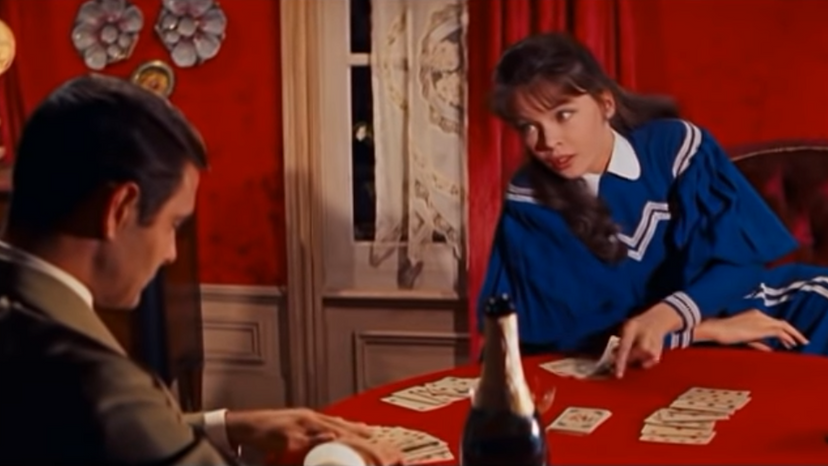
About This Quiz
James Dean. John Wayne. Audrey Hepburn. Marilyn Monroe. Movie stars like these defined 1950s film, turning iconic performances into gorgeously shot Westerns, witty comedies and toe-tapping Technicolor musicals.
But Audrey and John weren't the only stars during that time. Remember Patricia Neal? Paul Newman? Burt Lancaster? Debbie Reynolds? From "Singing in the Rain" to "Cat on a Hot Tin Roof", this era offered actors an incredible assortment of brilliant scripts, as well as the chance to be directed by top-notch auteurs like Alfred Hitchcock, Howard Hughes, John Ford, Billy Wilder and Elia Kazan.
The result? Movies that still make the American Film Institute's list of the greatest movies of all time. In fact, 16 of the films on the AFI's 2007 list of the Greatest American Movies of All Time came from the 1950s. We've included a few of them on this quiz, in fact. Can you spot them?
If you're a true fan of 1950s films, prove it by matching these stars to their 1950s movies! Along the way, we bet you'll find a number of flicks that are begging for a re-watch. After all, is there really such a thing as too much Marlon Brando?
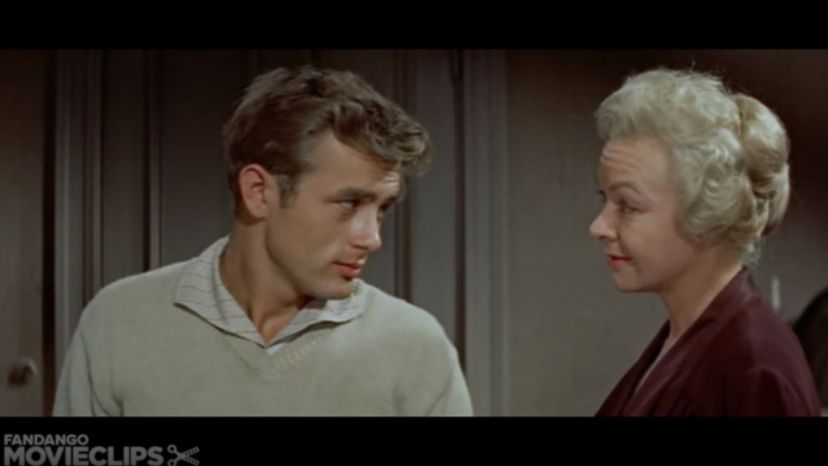
Although James Dean died tragically in a car accident at the age of 24, his performance in "East of Eden" earned him the Academy's first posthumous Oscar nomination. He was also nominated for an Oscar posthumously for his work in "Giant".
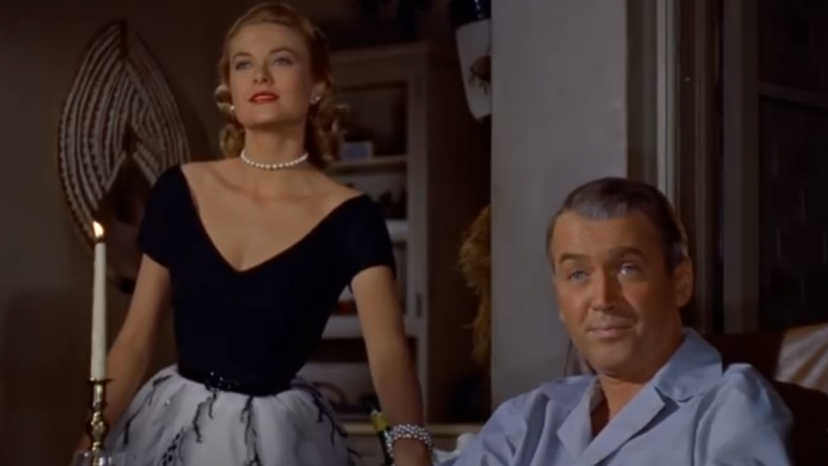
Nominated for four Oscars, "Rear Window" is still being discussed by critics today. This classic was made in 1954. In 2016, it made it onto the American Film Institute's list of the top 10 greatest mystery films of all time.
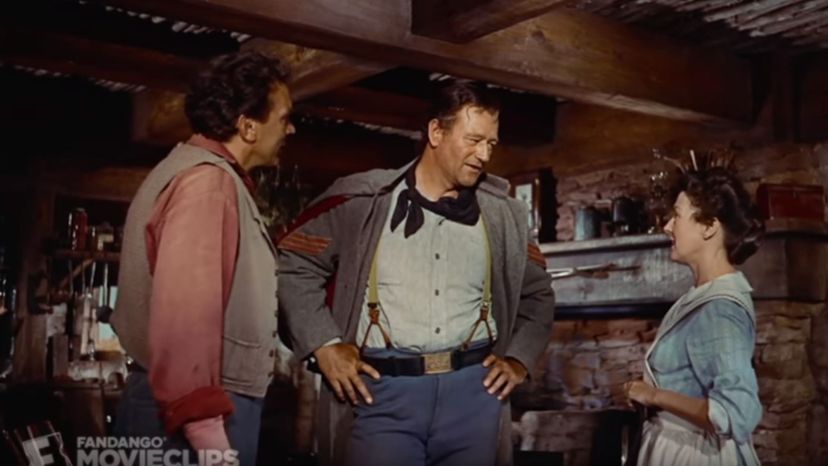
Unlike many Westerns of its time, "The Searchers" explicitly shows the racism which white settlers harbored toward Native Americans during the conquest of the West. Playing the bitter anti-hero Ethan Edwards, John Wayne's performance in "The Searchers" won him remarkable critical acclaim; in fact, "The Searchers" has a 100% Fresh score on Rotten Tomatoes!
Advertisement
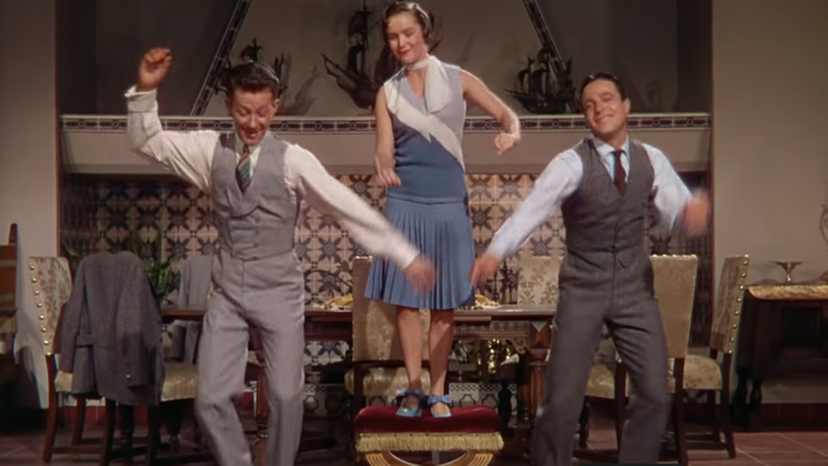
"Singing in the Rain" shows off Debbie Reynolds' acting and dancing! Although her famous "Good Morning" dance scene took 11 hours to shoot, and left Debbie with bleeding feet, USA Today recently hailed it as her best musical number ever.
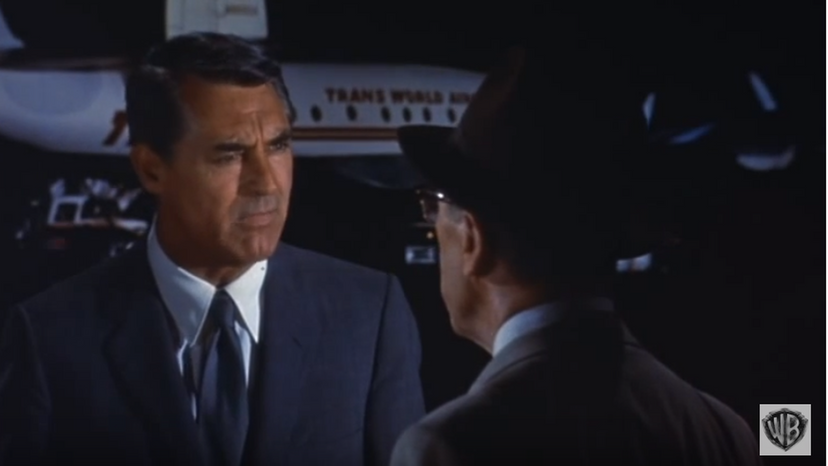
"North by Northwest" is a rollicking story of a Madison Avenue advertising executive mistaken as a CIA agent by Russian spies. The gray Glen plaid suit Grant wears in the film was named "the greatest suit in cinema" by Esquire Magazine in 2015.
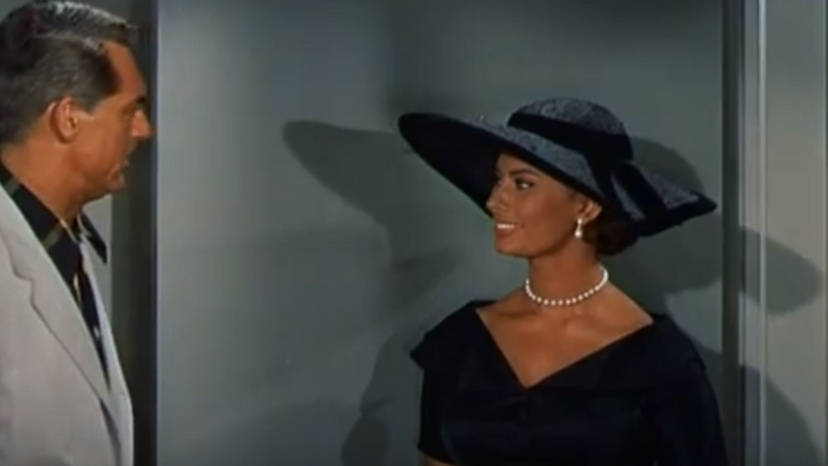
"Houseboat", starring Sophia Loren as Cinzia Zaccardi and Cary Grant as single father-of-three Tom Winters, earned the film's screenwriters a "Best Original Screenplay" Oscar nomination. Hollywood gossips of the time claimed that the on-screen chemistry between the two stars arose from an off-screen affair.
Advertisement
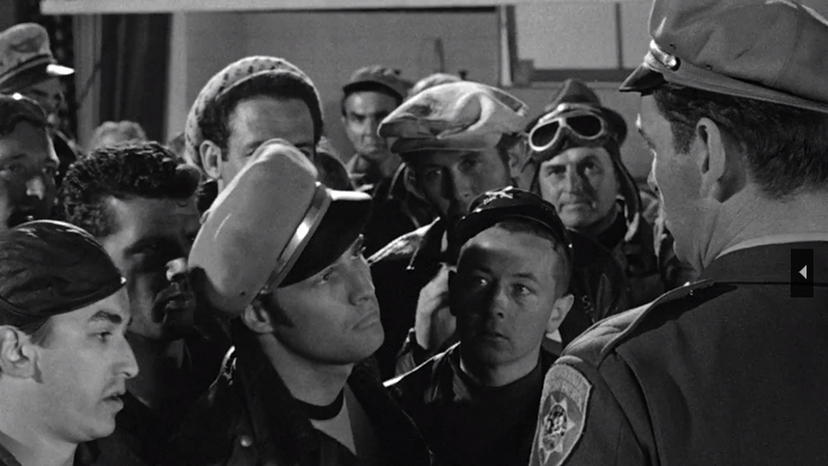
As sensual, brooding Johnny Strabler in "The Wild One", Brando delivers a performance that caused critic Kim Newman of Empire Magazine to declare that "Brando's magnetism is eternal". In the movie's most famous exchange, a character asks Johnny, "What are you rebelling against?" Johnny's reply, "Whatta you got?" is accompanied by a wounded, memorable sneer.
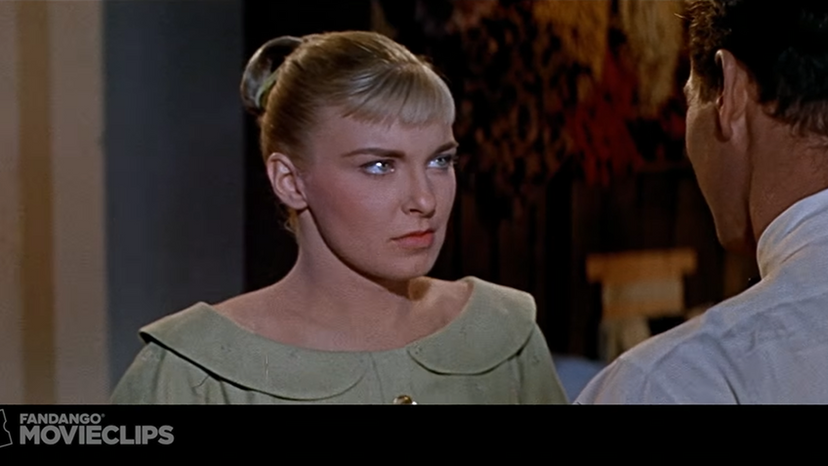
"The Long, Hot Summer" put the talented Joanne Woodward on the map. In the film, she plays Clara Varner, spinster daughter of patriarch Will Varner (Orson Welles). Her on-screen love interest, Ben Quick, is played by Woodward's future real-life husband of 50 years, Paul Newman.
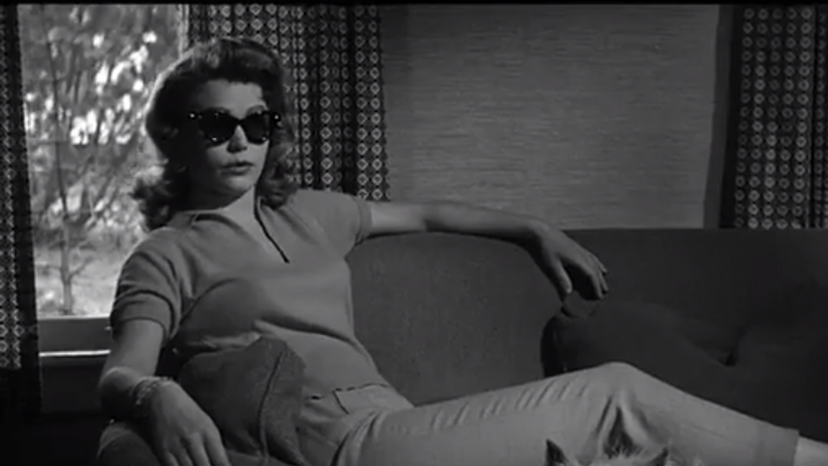
"Anatomy of a Murder", directed by Otto Preminger, is one of the first examples of a fictionalized "ripped from the headlines" courtroom drama. Later, TV series like "Law and Order" would often feature "ripped from the headlines" stories, but at the time this approach was risky, and caused Columbia Pictures to be unsuccessfully sued for libel by the daughter of one of the real-life people involved in the case.
Advertisement
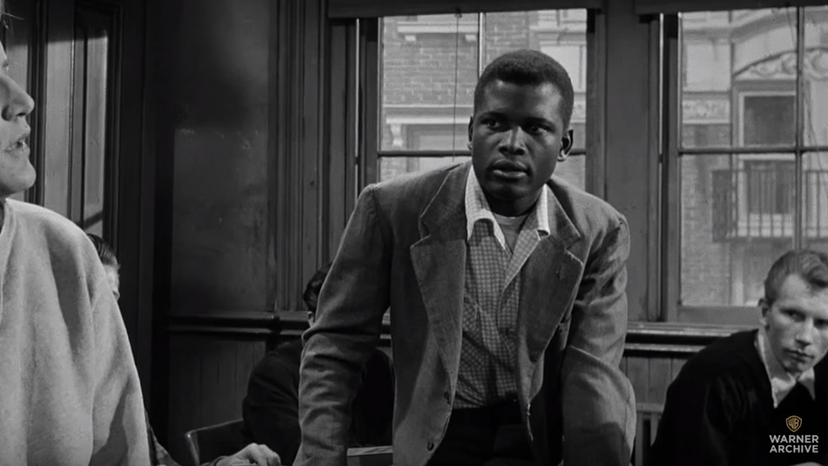
"Blackboard Jungle," a tale about the struggle of an inner-city school teacher to reach his students, was one of Hollywood's first attempts at portraying youth culture accurately. Its theme song, "Rock Around the Clock," was the first rock song to be used in a mainstream Hollywood film. England's "Teddy Boys," a proto-punk subculture, caused major disturbances in British movie theaters by dancing and rioting in the aisles during screenings of "Blackboard Jungle".
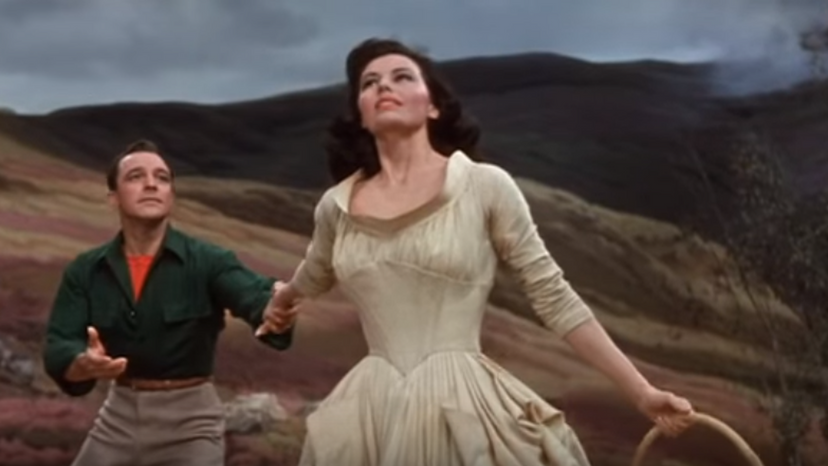
A classic MGM musical, "Brigadoon" tells the story of a magical Scottish village that only exists in reality for one day every hundred years. Cyd Charisse, who was most acclaimed for her dancing ability, performs well alongside legendary hoofer Gene Kelly, causing DVD Journal critic Betsy Bozdech to say that "[Kelly and Charisse] execute their dance sequences perfectly and passionately".
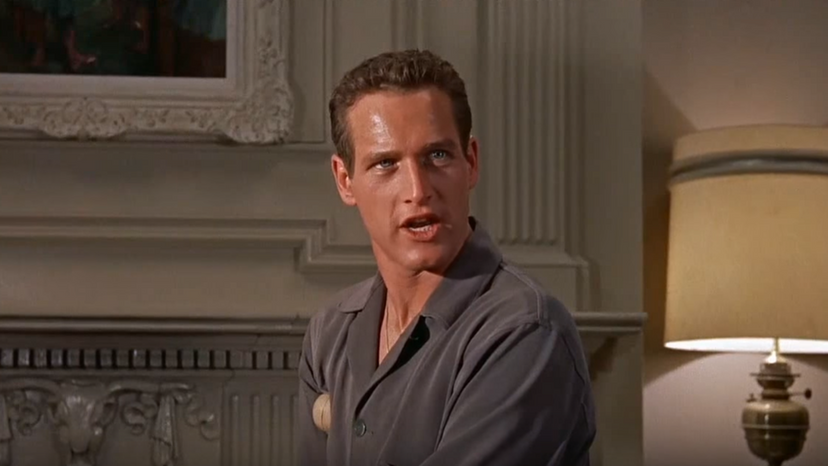
"Cat on a Hot Tin Roof" provides Paul Newman with yet another showcase for his skill at playing "Southern Gothic" leading men. In actuality, Newman hailed from a well-to-do family of Slovak and Jewish immigrants who lived in Shaker Heights, Ohio.
Advertisement
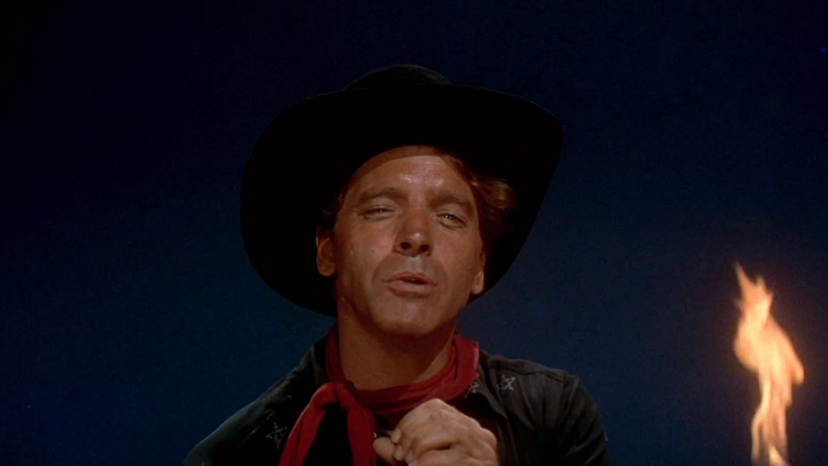
Bing Crosby, William Holden, and Elvis Presley were all considered for Lancaster's part in "The Rainmaker", but Lancaster proved to be the best choice. He received a Golden Globe nomination for his performance as a conman who promises to bring rain (and romance) to a drought-stricken town of lonely, desperate people.
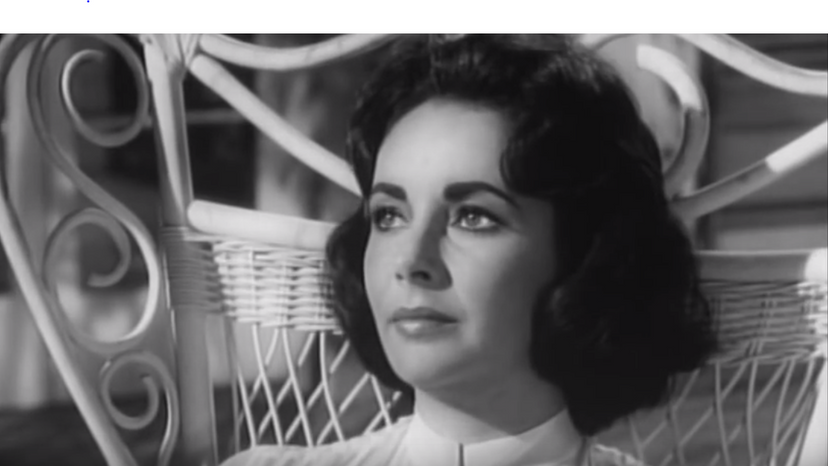
"Suddenly, Last Summer" tells the odd story of Catherine Holly (Elizabeth Taylor), a woman who saw something so shocking happen to her cousin that she goes insane. Her aunt Mrs. Venable (Katharine Hepburn) tries to have her lobotomized so that she won't reveal what she saw.
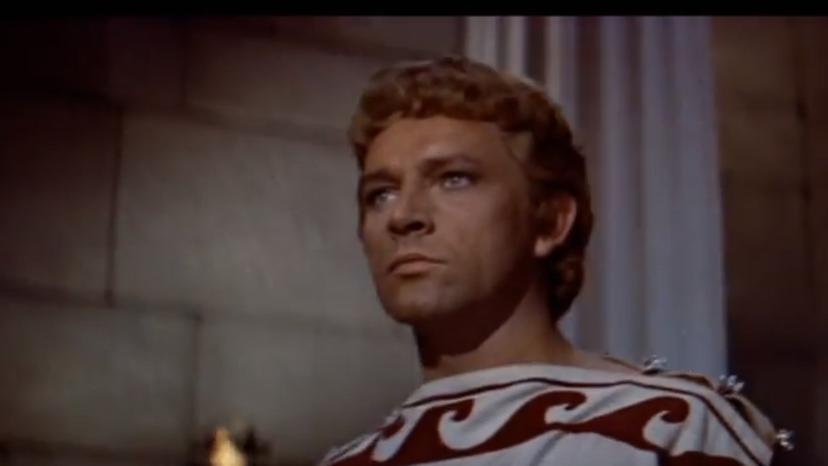
"Alexander the Great" took advantage of Richard Burton's Shakespearean training by casting him as the renowned military commander. However, critics didn't respond positively to the film, leading Burton to refuse other historical roles in biopics until his wife Elizabeth Taylor landed the title role in "Cleopatra".
Advertisement
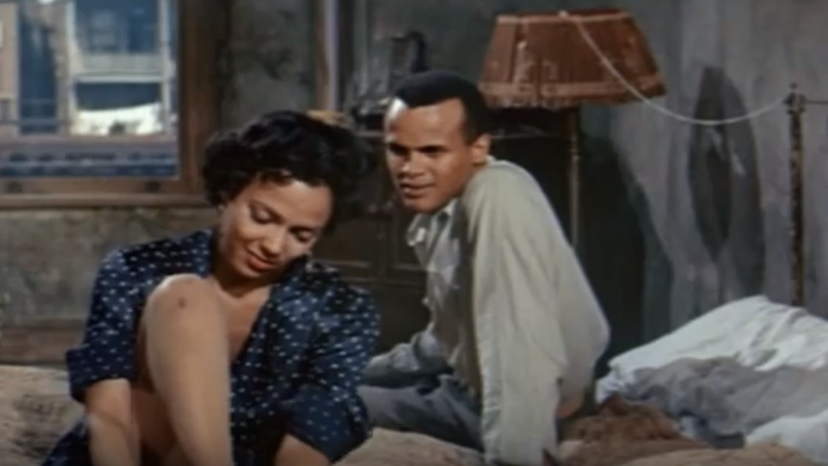
"Carmen Jones", based on the opera "Carmen" by Georges Bizet, changed the opera by setting it in modern times with an African-American cast. Dorothy Dandridge's incendiary performance as Carmen Jones won her an Oscar nomination, making her the first African-American actress to be nominated for a Best Actress Oscar.
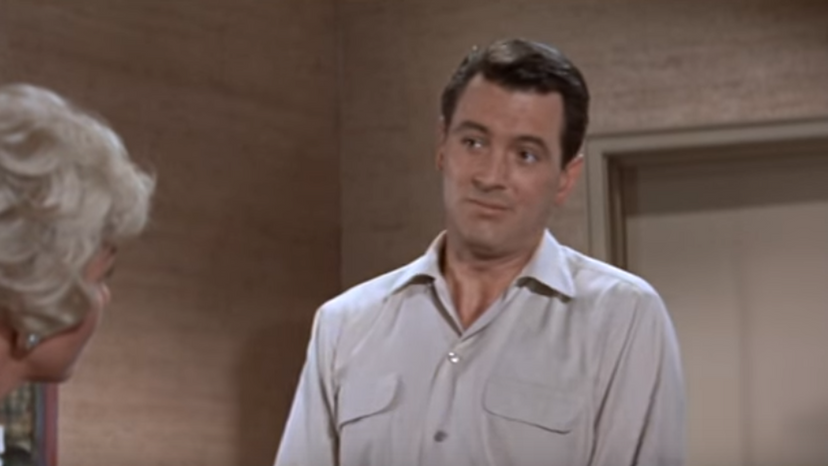
"Pillow Talk", just one of several films that pair Rock Hudson with Doris Day, is a light-hearted romp about two witty singles fighting over a shared telephone line. While the technological aspects of plot might not make sense to modern viewers, fans of rom-coms like "You've Got Mail" or "Mean Girls" will find a lot to like. New York Times film critic Bosley Crowther called it, "one of the most lively and up-to-date comedy-romances of the year".
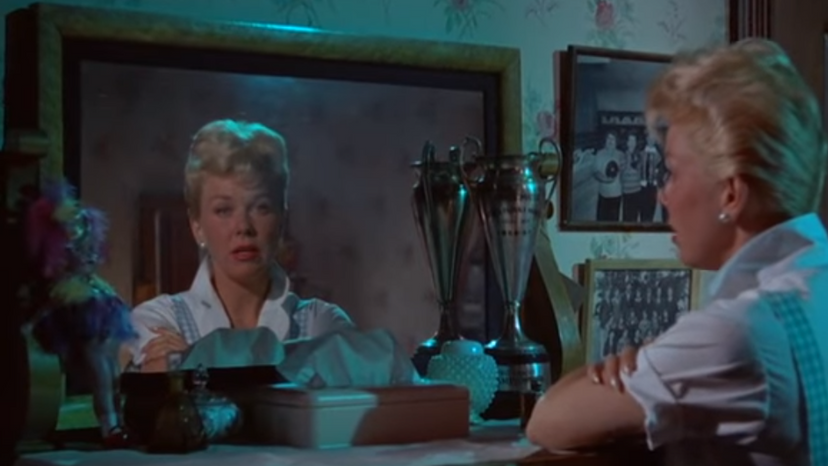
"The Pajama Game" stars the sparkling Ms. Day as Babe Williams, a worker at a pajama factory who is seeking a seven and a half-cent raise per hour for herself and her coworkers. Originally a Broadway play, "The Pajama Game" features choreography by Bob Fosse, as well as much of the original cast of the Broadway production.
Advertisement
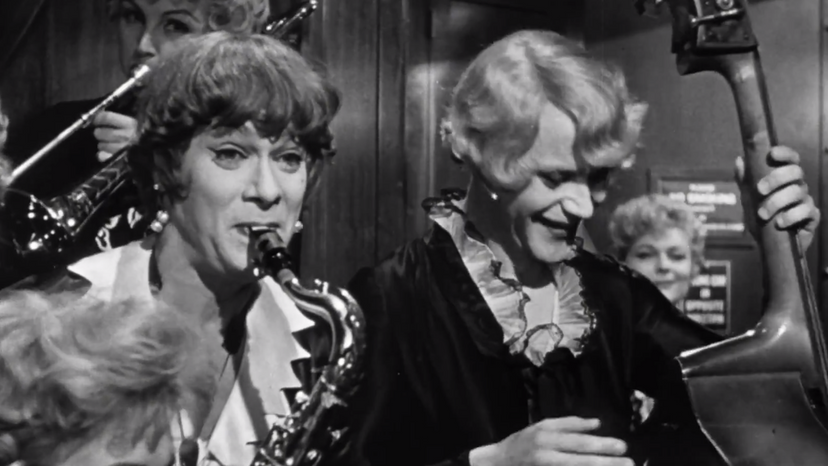
"Some Like It Hot" features heartthrob Tony Curtis in drag for much of its running time. Kansas movie theaters banned the film, saying that their moral objections to cross-dressing were too strong to allow it to be shown. It went on to be nominated for six Oscars.
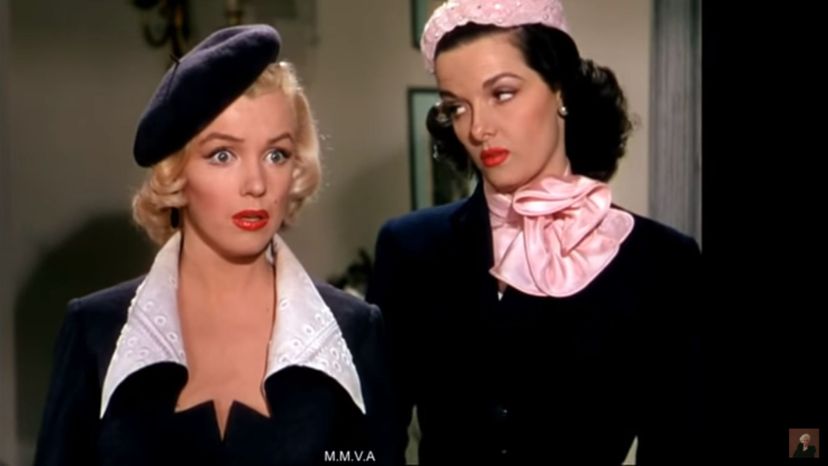
"Gentlemen Prefer Blondes", which is based on the best-selling novel by Anita Loos, makes the most of its stars, letting Jane Russell spoof her man-hungry image and Marilyn Monroe play up her naive gold-digger persona. This film is actually one of two 1953 movies starring Jane Russell whose plots feature her travelling on an ocean liner.
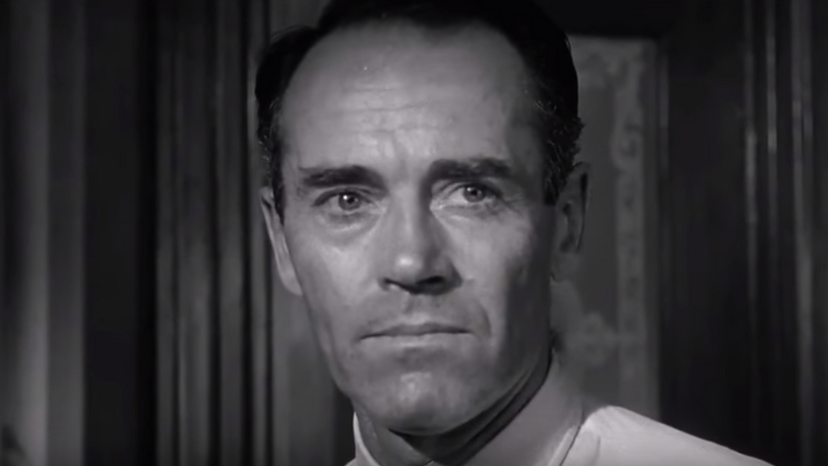
"12 Angry Men" takes place in just three rooms, giving it an intense, real-life tension. Critic Joshua Rothkopf, of Time Out New York, writes, "Often, these dozen jurors seem on the verge of blows; the movie, dealing with a murder trial, is about persuasion, but it also showcases New Yorkers’ distinct talent for coexisting in tight quarters."
Advertisement
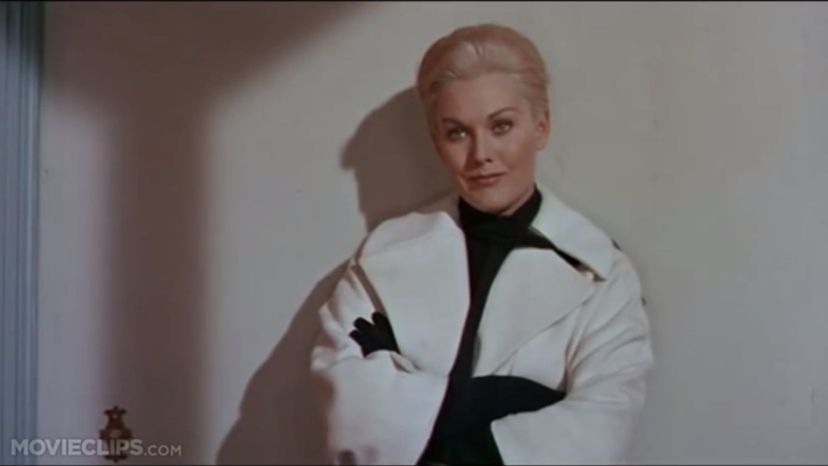
Kim Novak plays two women in this Hitchcock suspense film: upper-class socialite Madeleine Elster, and ordinary Kansan Judy Barton. James Stewart plays Scottie Ferguson, the retired policeman who becomes obsessed with them both. Dave Kehr of the Chicago Reader calls the film "one of the landmarks—not merely of the movies, but of 20th-century art".
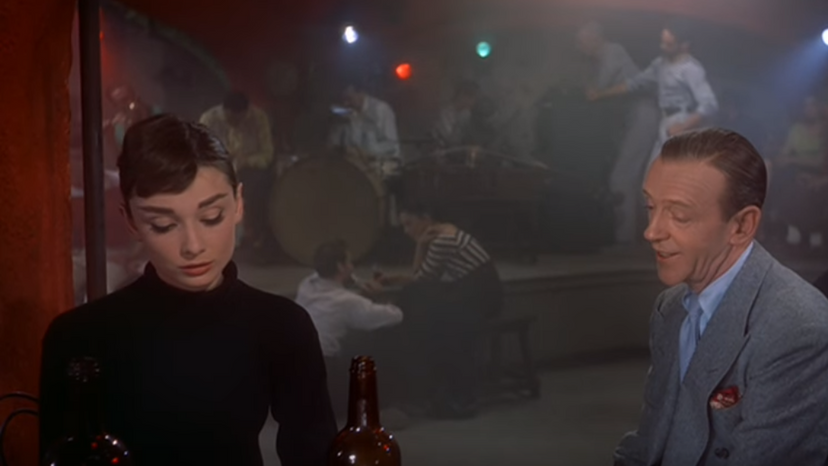
"Funny Face" pretends that anybody would ever find Audrey Hepburn less than stunningly beautiful. She plays a bookstore worker who is "discovered" by photographer Fred Astaire, and subsequently transformed into a fashion model. The role was originally offered to Cyd Charisse, who also would have been an unrealistic choice to play an "ugly duckling".
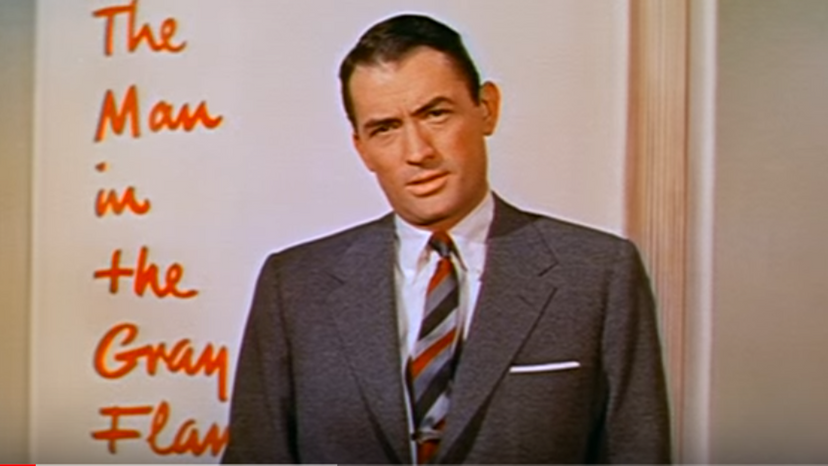
"The Man in the Grey Flannel Suit" shows the hollowness of a life dedicated to careerism. Peck plays a husband and father who finds out that he has an illegitimate child, the result of an affair he had during the war.
Advertisement
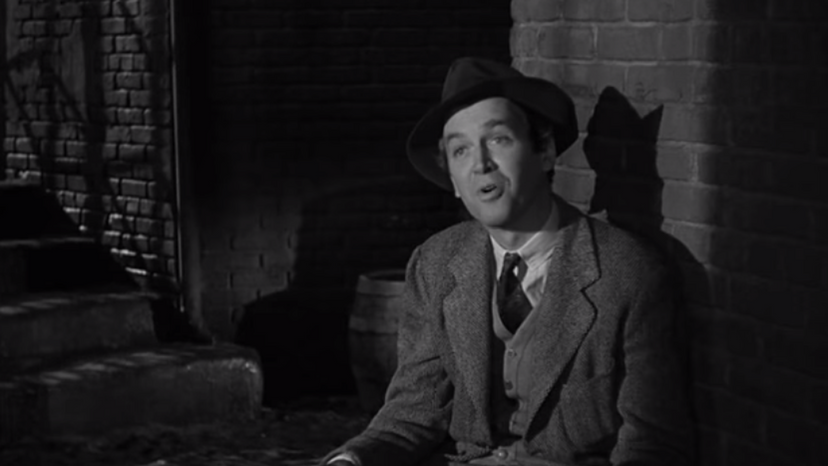
"Harvey", a rare film of the era written by a female screenwriter, was adapted by Mary Chase from her Pulitzer Prize-winning play of the same name. James Stewart turns in a quintessential performance as gentle Elwood P. Dowd, whose best friend is an imaginary six-foot-tall rabbit named Harvey.
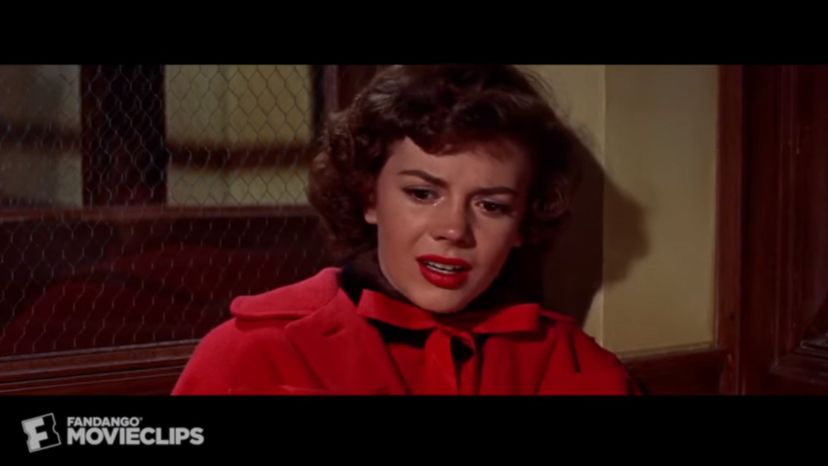
Only 16 when she starred in this film, Natalie Wood formed strong bonds with her fellow actors, including James Dean, Sal Mineo, Nick Adams and Dennis Hopper. Like her co-star James Dean, Natalie Wood also died tragically, in a mysterious boating accident.
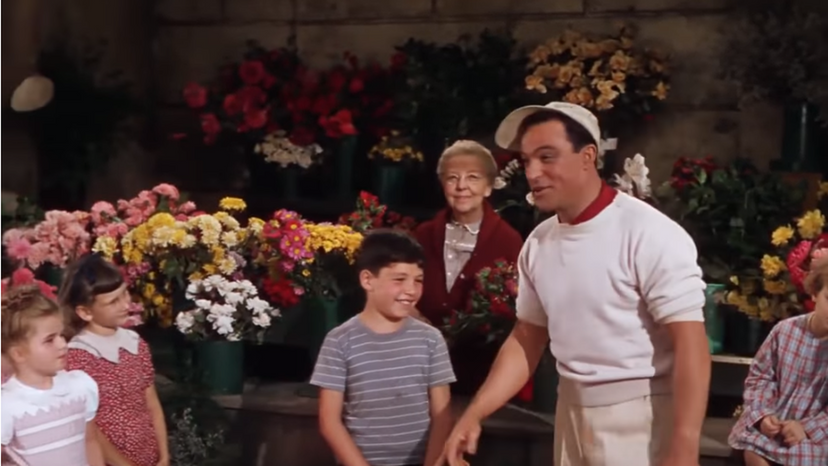
"An American in Paris", Gene Kelly's favorite musical, features his acting, singing, choreography, dancing and directing. Kelly directed many sequences in the film, due to director Vincente Minnelli being distracted by personal problems. He won an Oscar that year for his versatility in these areas, which was the only Oscar he was ever awarded.
Advertisement
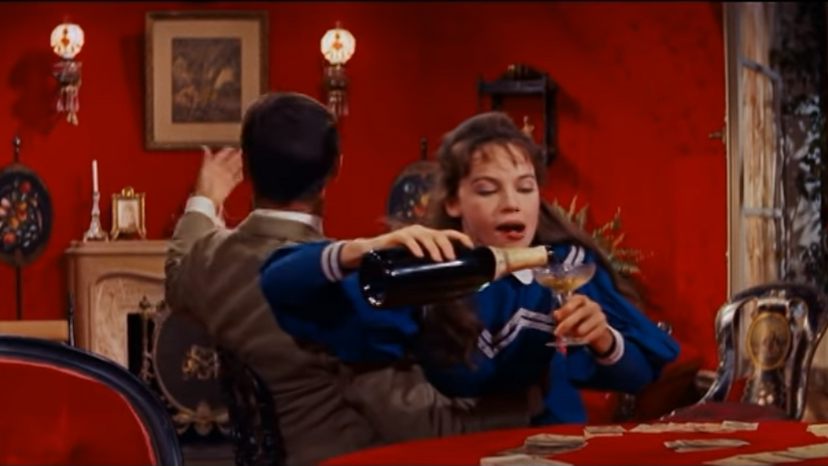
"Gigi", a musical about a young girl being groomed to become a Parisian courtesan, hasn't aged well. While Caron's performance is delightful, the romance between a 16-year-old girl and older playboy Gaston makes modern audiences uncomfortable.
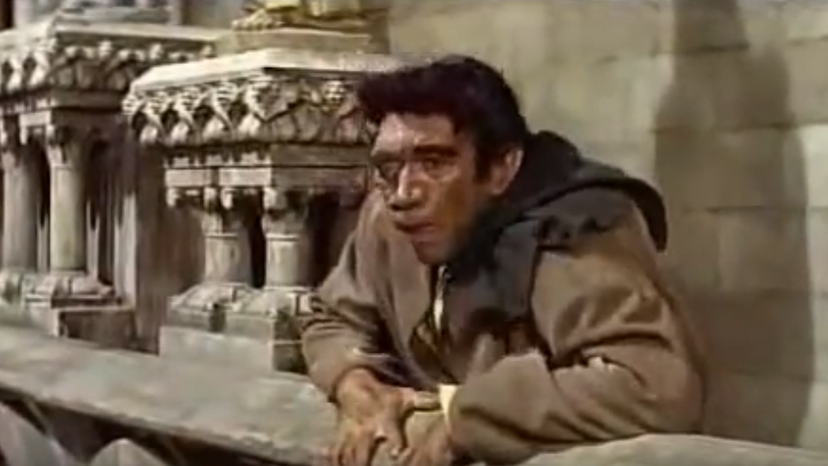
Anthony Quinn plays Quasimodo in this adaptation of Victor Hugo's "The Hunchback of Notre Dame". Simultaneously shot in both English and French, the majority of the French cast had to have their voices dubbed for the English language version, while Quinn and Gina Lollobrigida performed their lines in both languages.
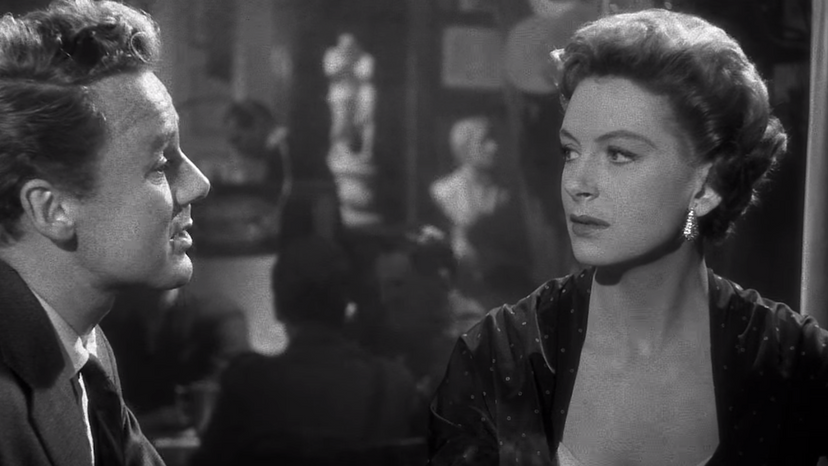
"The End of the Affair" didn't enchant critics, perhaps because its story had such dark undertones (it takes place in Britain after World War II). In 1999, Julianne Moore starred in a remake of the film, in the part which Deborah Kerr originated. The remake was nominated for several Oscars.
Advertisement
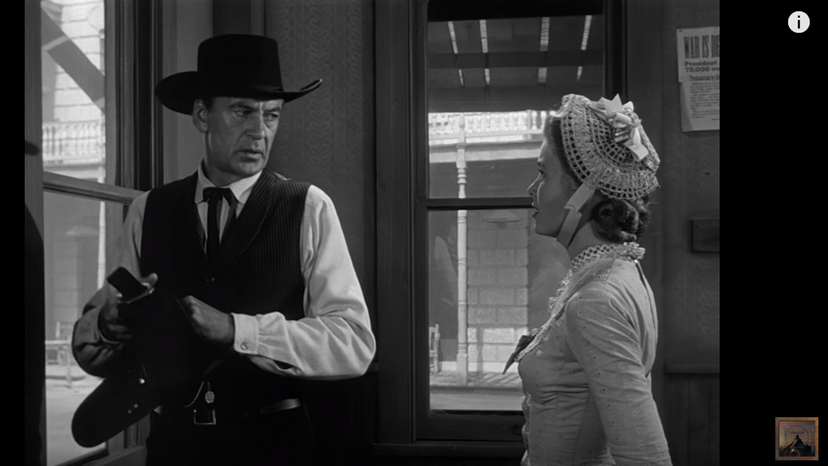
At the age of 51, Gary Cooper was considered "washed up" when he made "High Noon". His performance as Marshall Will Kane helped him to make a comeback. "High Noon" achieves its tension by famously taking place in "real time".
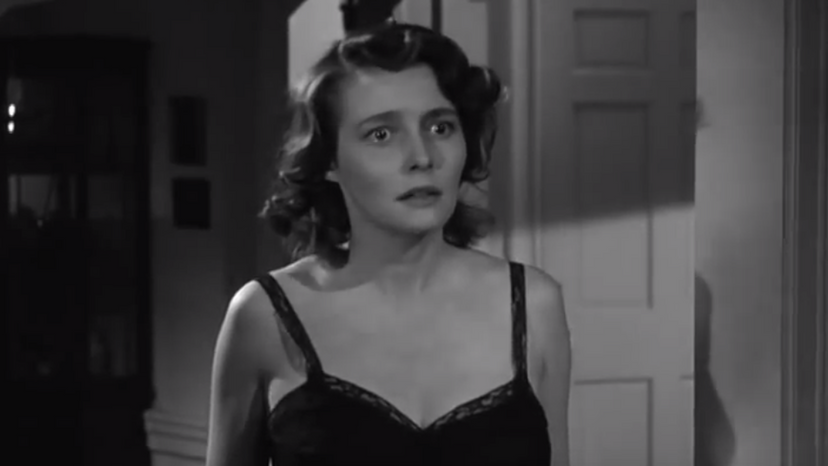
"A Face in the Crowd" is the still-relevant tale of an ex-con who rockets to fame and political power after he's discovered by a young journalist, played by Patricia Neal. Critic Ron Gonsalves says, "The acting, especially by Griffith and Neal, is witty but primal at times, almost Kabuki-like (also note Neal’s silent-horror-film method of indicating distress by clutching her face)."
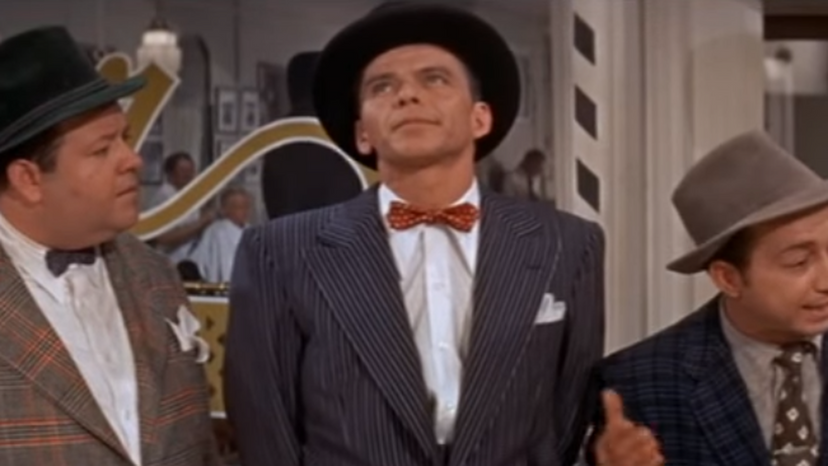
Frank Sinatra is very funny as Nathan Detroit in "Guys and Dolls". Although he performs capably alongside his co-star Marlon Brando, Sinatra very much wanted Brando's Sky Masterson part for himself, which led to a great deal of on-set tension between the two men.
Advertisement
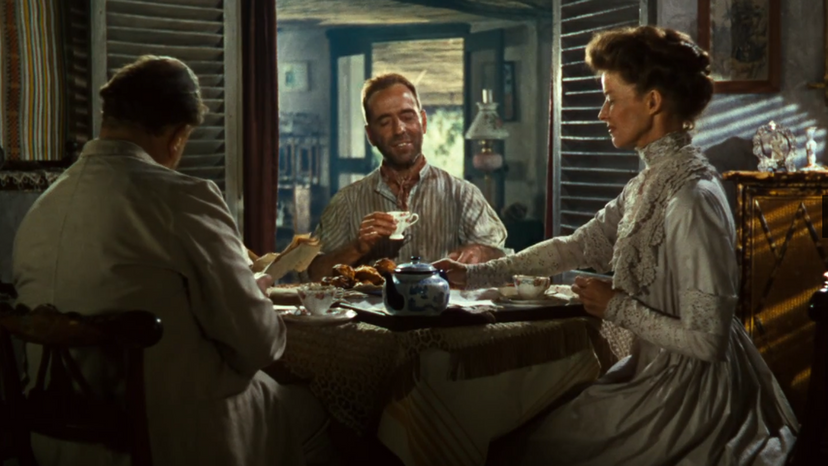
"The African Queen", starring Katharine Hepburn and Humphrey Bogart late in their careers, shows that a romance story between people in late middle age can still win over audiences. Bogart won an Oscar for his performance, and Hepburn, director John Ford, and screenwriter John Agee each received Oscar nominations.
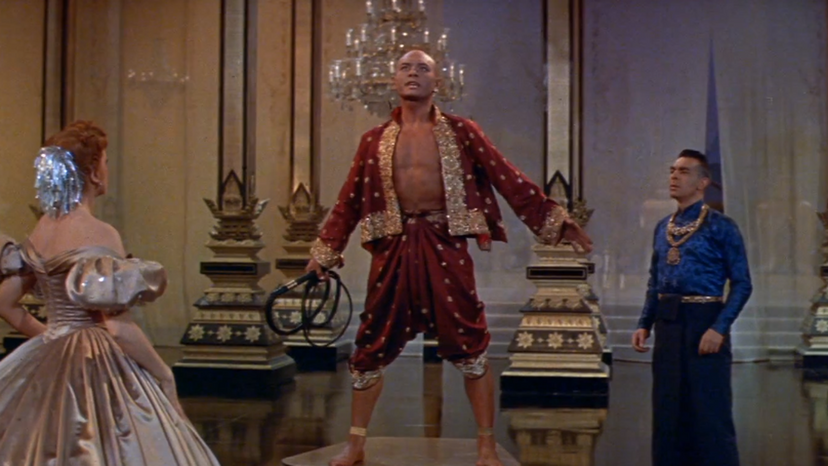
"The King and I" originated in Broadway, where Yul Brynner won a Tony for playing the title role. The producers persuaded him to recreate the role on-screen, and he won an Oscar for his portrayal as well.
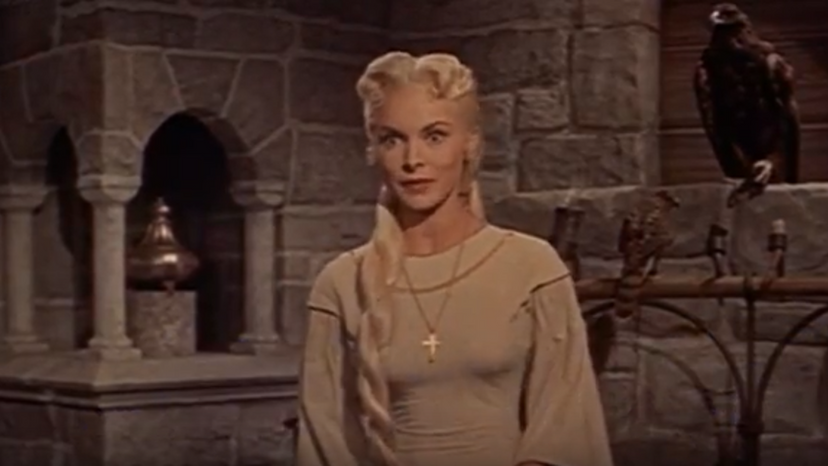
"Prince Valiant" offered audiences Technicolor sets and exciting action set pieces. It also had wigs and costuming that some critics mocked. DVD Journal critic Robert N. Lee writes, "The design and cinematography are adequate at best, the dialogue and writing is sub-par, even for a '50s swashbuckler ... the story's thin, and Valiant is… well, Robert Wagner."
Advertisement
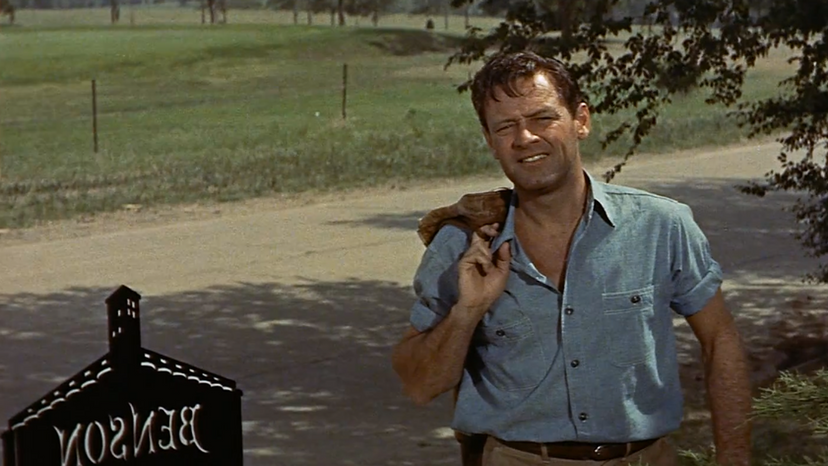
In "Picnic", William Holden plays a wandering college football star. As he was 37 at the time, producers insisted on shaving Holden's chest to make him look younger. TCM reviewer Frank Miller says the gambit paid off, writing that Holden, "establish[ed] himself as a major sex symbol with his performance and [rose] to the top of the year's annual box office polls."
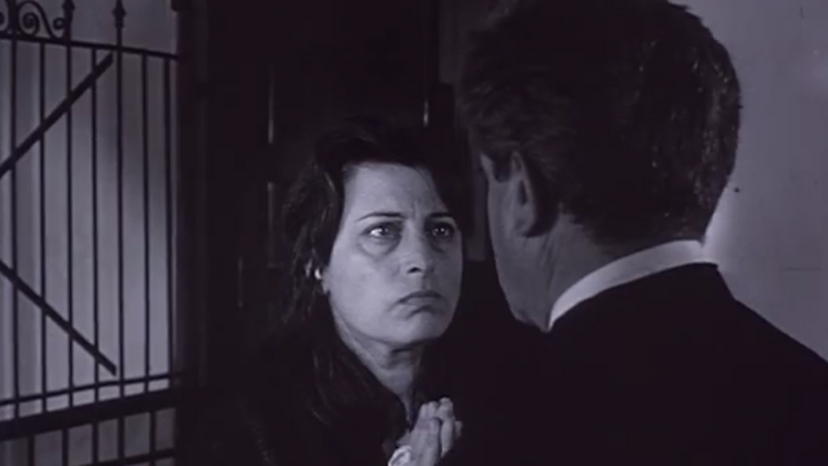
"The Rose Tattoo" was written for Magnani by Tennessee Williams, who wrote the role of Serafina for Magnani to play on the stage. She didn't play Serafina in the stage version of "The Rose Tattoo", but she did make "The Rose Tattoo" her first American movie. Tennessee Williams cast himself as an extra in some of the club scenes.
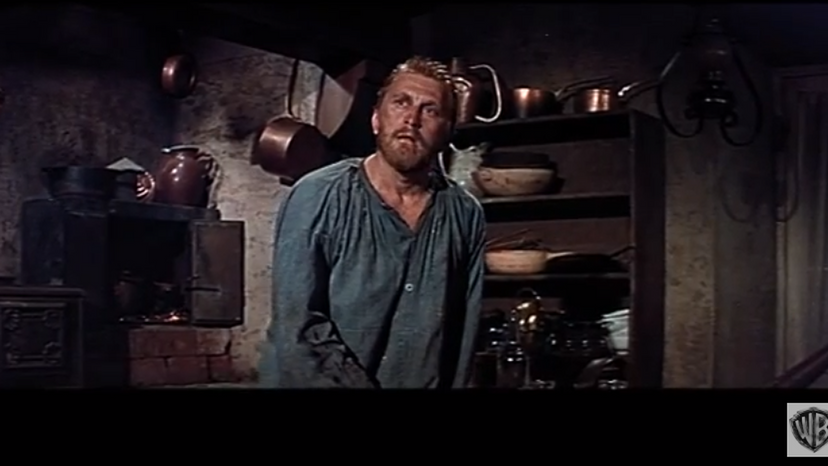
Playing the tragic painter Vincent Van Gogh in "Lust for Life" won Kirk Douglas much critical acclaim. New York Times critic Bosley Crowther writes, "The incidents of the painter's manifestations of insecurity and emotional torment are well arranged, and Mr. Douglas performs them with superior intensity, variety and yet restraint".
Advertisement
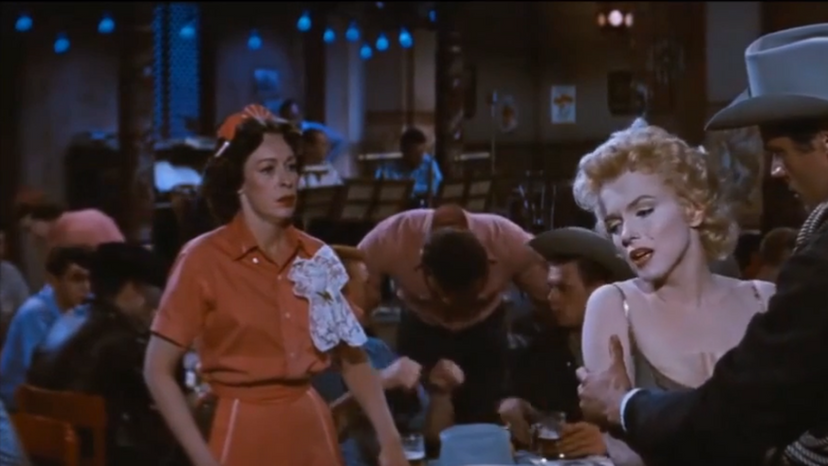
Marilyn Monroe felt proudest of her work in "Bus Stop", playing a talent-free nightclub singer with a past she wishes she could hide. It was both a critical and commercial success, making money at the box office and causing the Saturday Review of Literature to write that Monroe "effectively dispels once and for all the notion that she is merely a glamour personality".